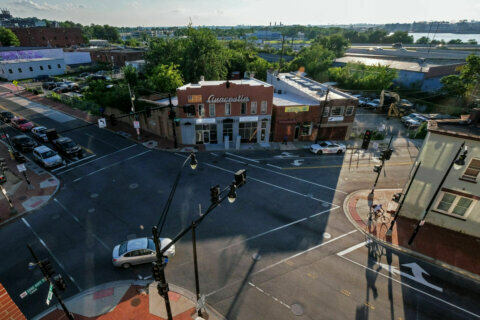The nation’s capital is in a better financial position than it has been in years, according to the latest report from D.C.’s chief financial officer.
But despite this prosperity, some residents want to know when they will feel it in their daily lives.
In presenting the 2019 financial report to the city council, City Administrator Rashad Young attributed reaching a 60-day cash fund to changes in income tax law and property sales growth.
“As a result of our commitment to fiscal responsibility, our bond ratings continue to be rated very well by all three rating agencies, including a AAA rating by Moody’s. Our financial position has improved over the last year. Our pension funds are robust, and our capital assets are worth more now than any other time in the District’s history,” Young said.
Both new employment and resident employment have increased, which Young said is due to an increase in private-sector jobs.
“The District’s General Fund balance at the end of fiscal year 2019 was $3.3 billion, an increase of $500 million from the fiscal year 2018 year-end balance of $2.8 billion. We’ve added two days of working capital, taking us up to 60 days,” he said.
Chief Financial Officer Jeff DeWitt told the council there are still improvements to be made, and that he is watching dipping population numbers and the housing markets for indicators of a looming recession.
“I can look at my peers in Charlotte and Boston and San Antonio and Denver that are strong AAA cities, and in many ways, I can say we are stronger than they are, particularly in the areas of pensions and things like that. So, we should be proud of that,” DeWitt said.
Happy to hear the numbers, at-large council member Elissa Silverman asked how they could ensure the city’s prosperity will trickle down.
“They say we have a very healthy city, yet we do not have healthy residents. They do not feel the impact of the financial benefit in their own lives,” Silverman said, adding that this is the challenge leadership faces collectively to bridge the gap between the “haves and have-nots.”
She suggested looking to reallocating some of the funds planned for trust savings.
“We have a great need to make this city more affordable to live in, and I think we have a great opportunity here. I think it’s about $168 million that’ll go to the trust fund,” Silverman said.
Council Chair Phil Mendelson asked why D.C. can’t spend money on immediate needs, such as homelessness, with the rainy-day coffers filled.
“$1.43 billion is a lot of dollars. That’s the rainy-day reserves. How do you respond to the social justice advocates who say this is too much and that housing the homeless, for instance, is a rainy day today?” Mendelson said.
Young said that while it sounds like a lot of money, $1.4 billion is not that much money considering how much the city needs to operate.
Most of the general fund is unavailable to be spent, and there are benefits to growing general reserves, Young said.
“The analogy I like to use is, one would not use their savings account to repeatedly pay their mortgage because when that savings account is gone and the mortgage is due, there is nothing remaining,” Young said.








